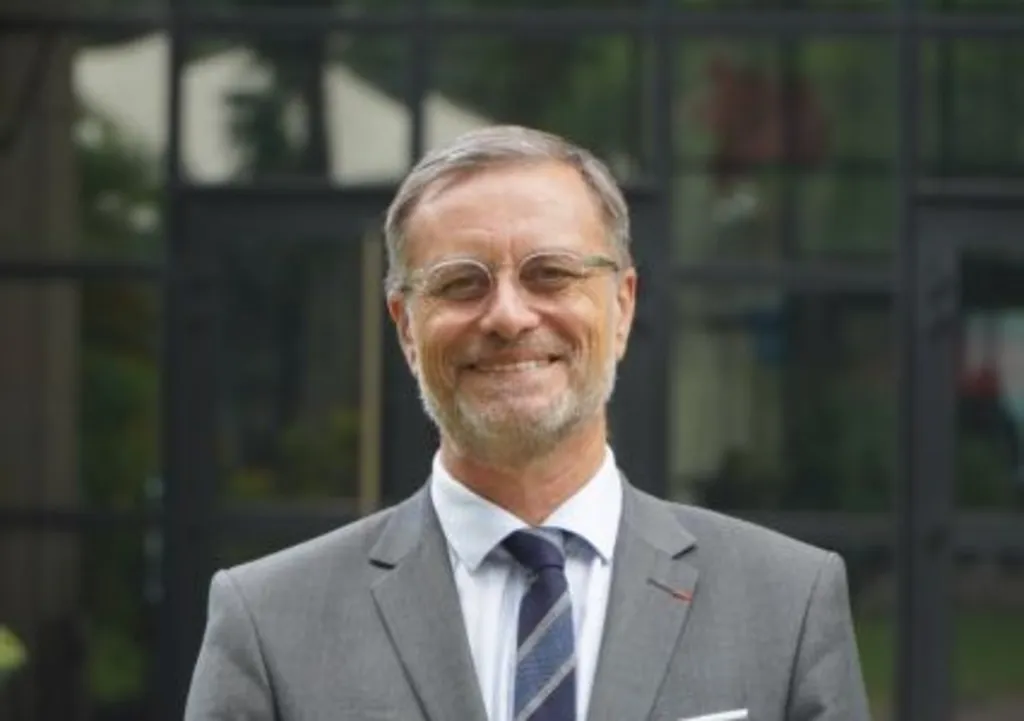 Opinion
Opinion

 |
| The French Ambassador to Việt Nam, Olivier Brochet. Photo courtesy of the French Embassy in Hà Nội |
The French Ambassador Olivier Brochet wrote for Việt Nam News on the occasion of the UNOC3 Ocean Summit Nice (France) in June, 2025, highlighting France’s aim, protecting the oceans through tangible action.
Olivier Brochet
From June 9 to 13, France will be hosting the third United Nations Conference to Support the Implementation of Sustainable Development Goal 14: Conserve and sustainably use the oceans, seas and marine resources for sustainable development (UNOC, or United Nations Ocean Conference). For this crucial event, some one hundred heads of state and government will converge, as well as tens of thousands of researchers, scientists, economic actors, activists and citizens from around the world. On this occasion, France’s aim will be clear: protecting the oceans through tangible action.
The oceans belong to all of us. They feed and protect our peoples. They inspire dreams and enable travel. They offer sustainable energy, means to trade, resources and infinite scientific knowledge.
One in three people relies on the oceans for their livelihood, yet the oceans are in danger. They remain little-known, with neither global governance nor the financing needed for their preservation. The numbers are worrying: more than eight million tonnes of plastic end up in the oceans every year, according to a study in Science. Moreover, more than a third of fish stocks suffer overfishing, while ocean acidification, rising sea levels and the destruction of marine ecosystems gain pace, as direct consequences of climate change.
We must act now. More than ever before, we must make sure that multilateral action is equal to the challenges of protecting the oceans.
Ten years after COP21 and the Paris Agreement, which established a binding global framework to limit climate change, the third United Nations Ocean Conference is a historic opportunity. The 'Nice Ocean Agreements' will form a genuine international compact for conservation and sustainable use of the oceans, fully in line with the sustainable development goals adopted by the United Nations in 2015.
To this end, the talks in Nice need to be very operational and action-focused, aiming for better governance, more financing and greater knowledge of the seas.
When it comes to governance, the Agreement on the Conservation and Sustainable Use of Marine Biological Diversity of Areas beyond National Jurisdiction (BBNJ Agreement) is essential. The high seas, which represent more than 60 per cent of the oceans, are currently the only space not governed by international law. The lack of oversight and common rules is causing a real social and environmental disaster, with massive hydrocarbon and plastic pollution, illegal and unregulated fishing techniques and the taking of protected mammals. To end this legal vacuum, we need the BBNJ Agreement to be ratified by 60 countries, so as to come into force.
The protection of the oceans also requires public and private financing and support for a sustainable blue economy. To continue enjoying the incredible economic opportunities offered by the oceans, we need to make sure marine resources can regenerate. In Việt Nam, French organisations and companies have already started to act to transform those wishes into actionable projects. This is for instance the case of French maritime transportation leader, CMA CGM, which is working on an e-barge project in Hồ Chí Minh City which will empty roads and develop electric river transportation. Satellite services provider CLS is also partnering with the Ministry of Agriculture and Environment to help track and monitor fishing vessels and promote sustainable management of fisheries. In Nice, several commitments will be announced for global trade, shipping, tourism and investment.
Lastly, how can we protect what we know not – or know insufficiently? We need to enhance our knowledge of the oceans and share it better. Today, we are capable of mapping the surface of the Moon or of Mars, but the depths of the oceans – which cover 70 per cent of the Earth’s surface – remain unknown. Together, we need to put science, innovation and education to work to better understand the oceans and raise public awareness.
In the context of ever faster climate change and overexploitation of marine resources, the oceans are not just one more issue: they are everyone’s business. We must not forget our shared responsibility in the context of challenges to multilateralism. The oceans join us all together and are central to our future. Together, we can make the third United Nations Ocean Conference a turning point for our peoples, for future generations and for our planet.
Việt Nam is one of the first signatories of the BBNJ Agreement. Ratifying this agreement before the United Nations Ocean Conference on June 9 would make a decisive contribution to its swift implementation. France looks forward to welcoming to Nice, Vietnamese leaders whose commitment to ocean protection is recognised, to jointly send a strong signal in favour of more equitable and sustainable governance of the high seas. VNS




